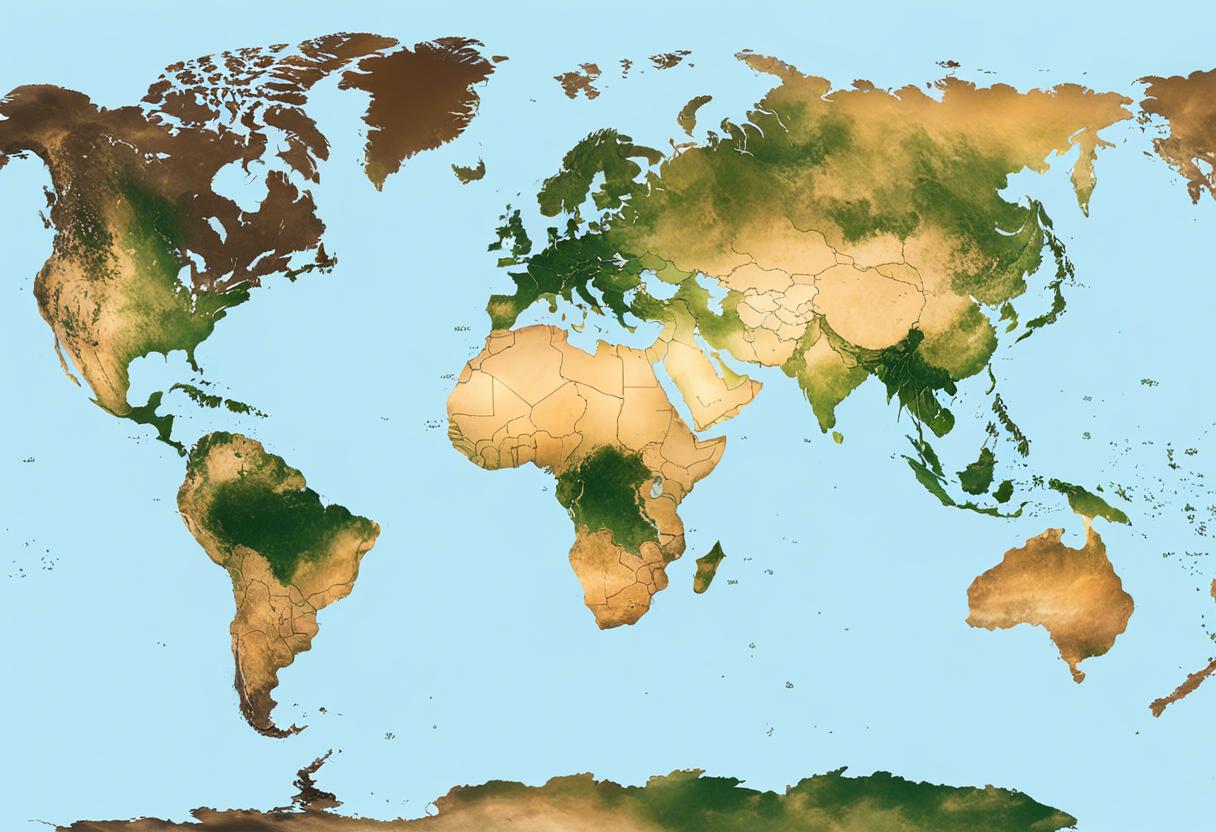In 2023, only a mere seven nations met the internationally recognised standards for air quality as set out by the World Health Organisation (WHO), reveals a recent report. Australia, Estonia, Finland, Grenada, Iceland, Mauritius and New Zealand were identified as the only countries and areas out of the 134 studied worldwide to adhere to the WHO’s recommended limit for harmful PM2.5 pollution. Such pollution is due to minute particles discharged by cars, industry, and lorries.
The Middle East, Africa, and Central and South Asia were significantly impacted, highlighting areas of great concern. The five nations with the highest levels of polluted air, adjusted for population, were Bangladesh, Pakistan, India, Tajikistan, and Burkina Faso, as documented by IQAir, a Swiss firm specialising in air-quality technology and data gathering across the globe.
The regions with the least polluted air included French Polynesia, Mauritius and Iceland. However, the capital cities with the poorest air quality included New Delhi, Dhaka in Bangladesh, Ouagadougou in Burkina Faso, Dushanbe in Tajikistan, and Baghdad. Meanwhile, other capital cities such as Wellington in New Zealand, Reykjavik in Iceland, and Hamilton in Bermuda boasted the lowest PM2.5 concentrations, mainly found in Oceania, Scandinavia and the Caribbean.
The report, compiled by IQAir, used data from over 30,000 monitoring points across 134 worldwide territories and nations. In relation to average PM2.5 concentration in 2023, Ireland was ranked in 119th position. The dominant source of PM2.5 pollution originated from the combustion of fossil fuels like coal, gas and oil, though a large variation in sources was noted, from brick kilns in Bangladesh to mining operations in Latin America.
Over four million premature deaths each year are linked to outdoor air pollution, primarily caused by PM2.5, states the WHO. These particles can infiltrate various organ systems and the bloodstream, leading to respiratory and lung irritation. This makes PM2.5 detrimental to human health, explained Misbath Daouda, an assistant professor of health equity and environmental justice at the University of California at Berkeley, who was not involved in the IQAir study.
PM 2.5 pollution has a connection to higher instances of heart attacks and strokes, also causing a phenomenon termed oxidative stress – a type of physiological stress that impairs the body’s cellular integrity faster than they can retrieve themselves. Oxidative stress is tied to a plethora of diseases, including Parkinson’s disease and cancer. The negative effects of such pollution, even when present at modest levels, led the World Health Organisation (WHO) in 2021 to reduce its suggested norms from an average of 10 to five micrograms per cubic metre. However, IQAir’s investigation shows that only a handful of countries are meeting this standard. Despite the report painting a somber picture overall, there are a few positives to note. For instance, China, once infamous for its poor air quality, has shown significant improvement over the past twenty years. Chile reported a 15% reduction in PM 2.5 pollution from 2022, even while grappling with smoke from wildfires in February. South Africa saw a similar reduction in its annual average PM 2.5 concentration. – Agencies

